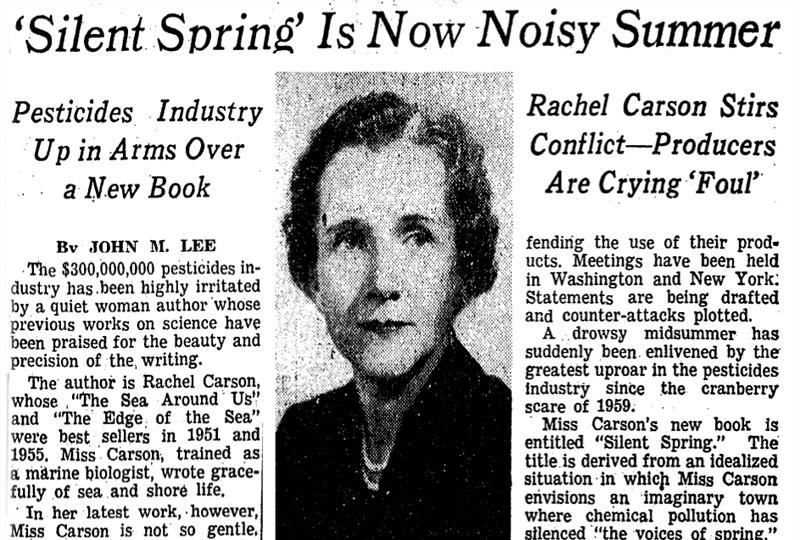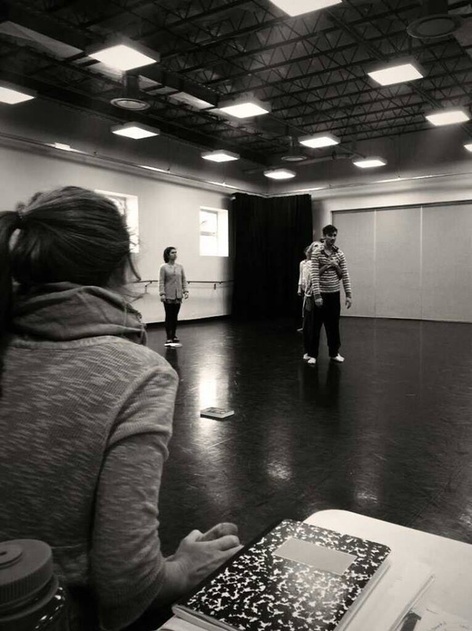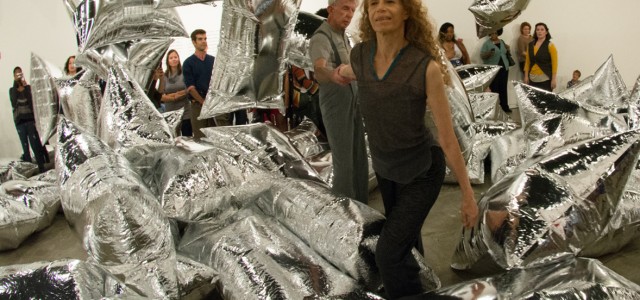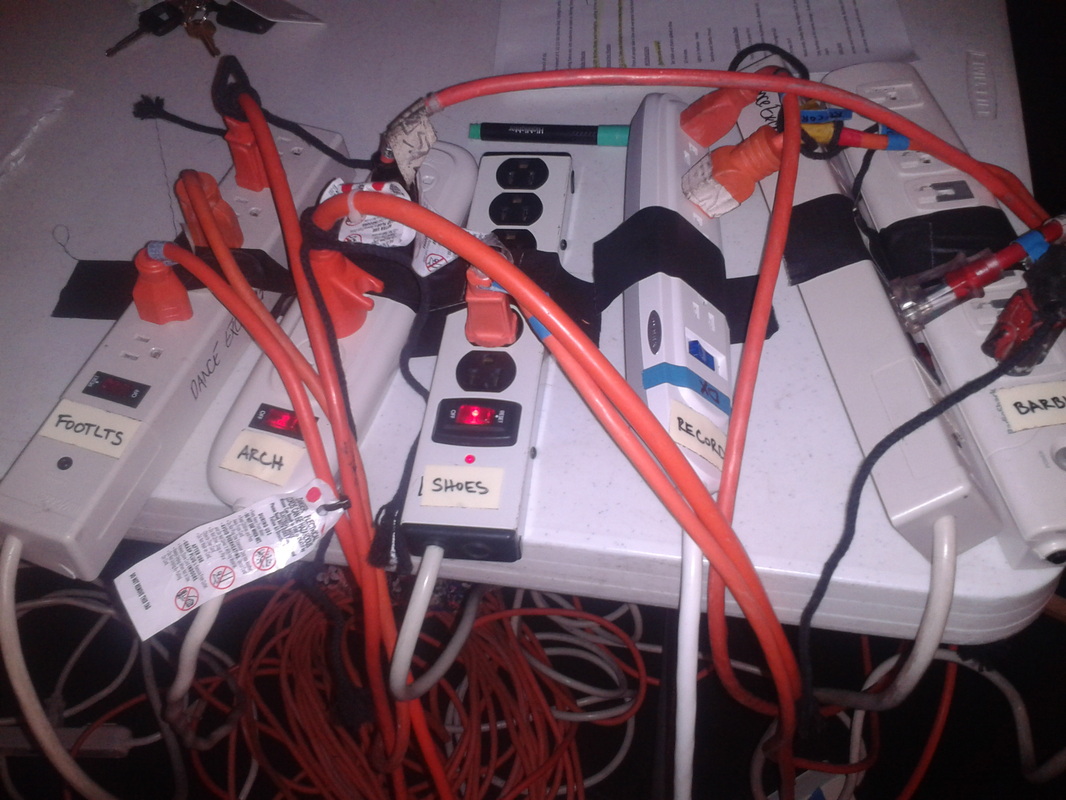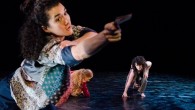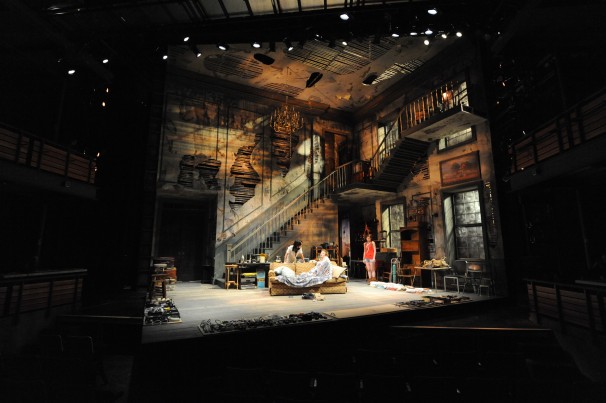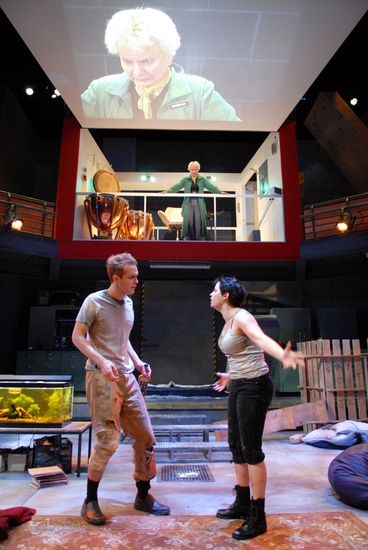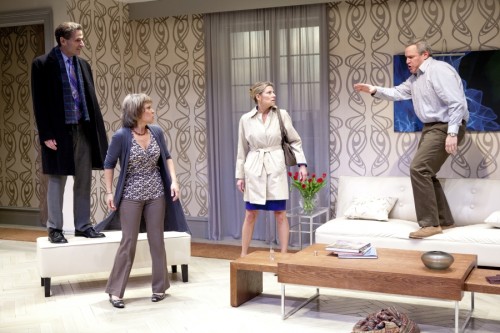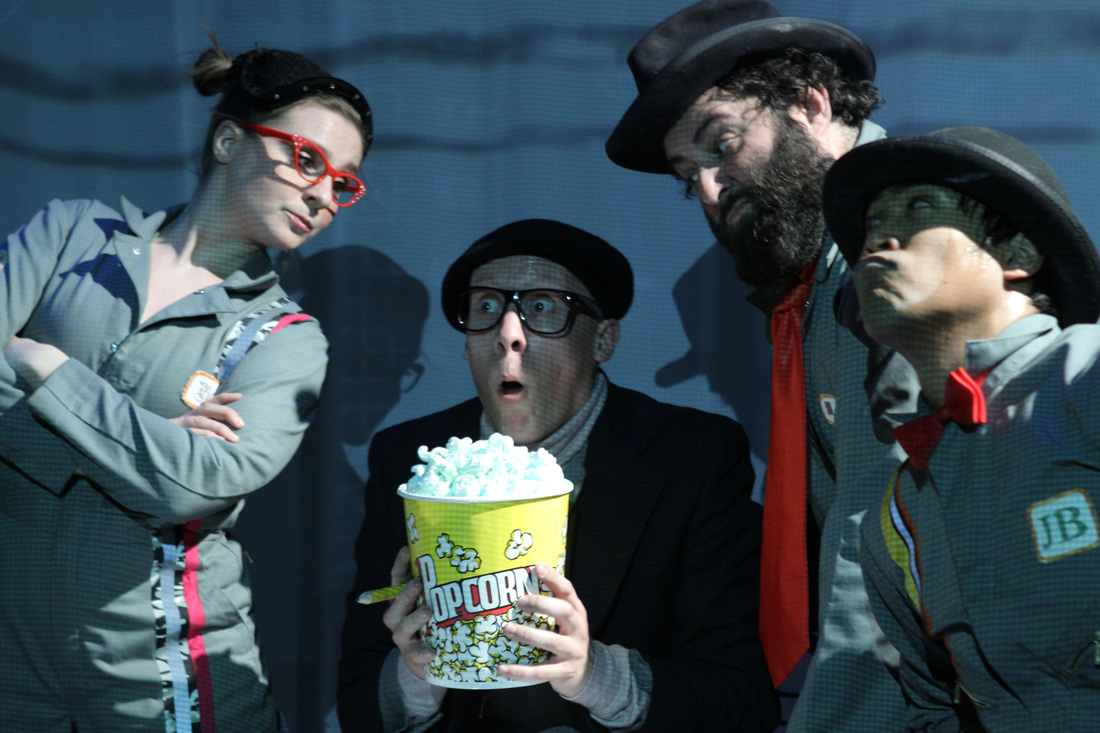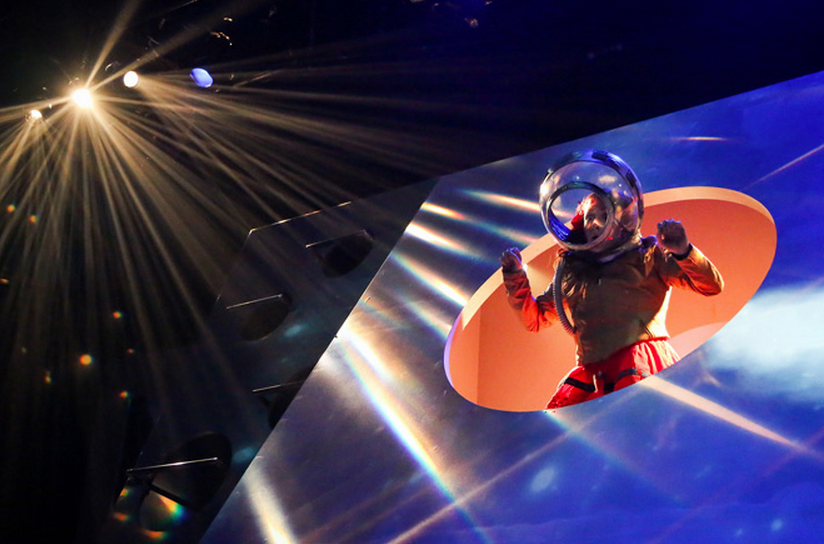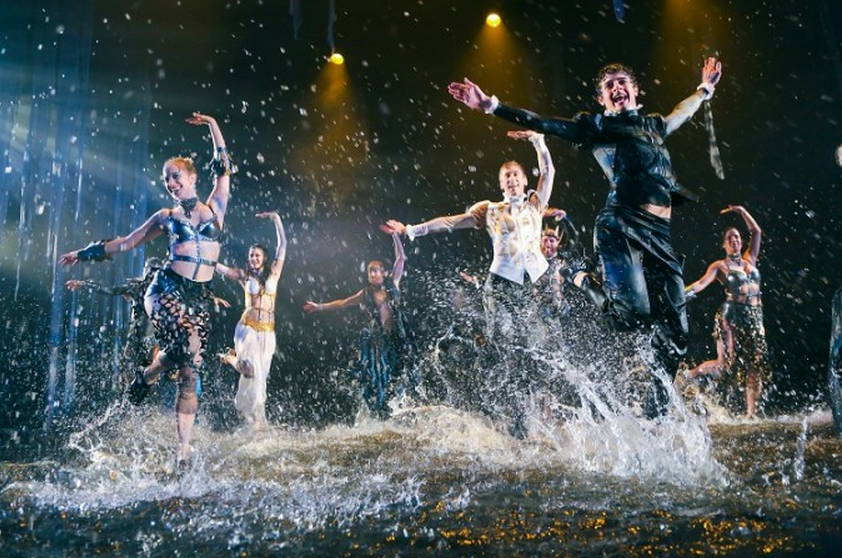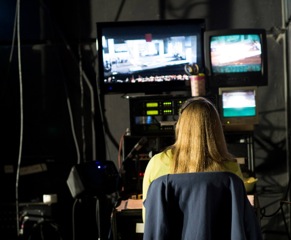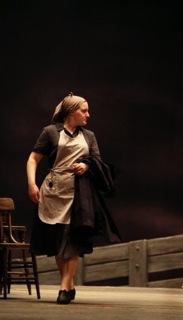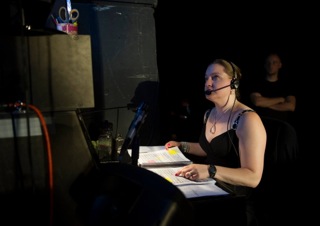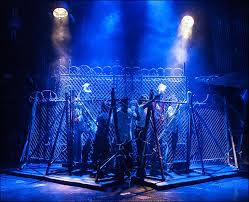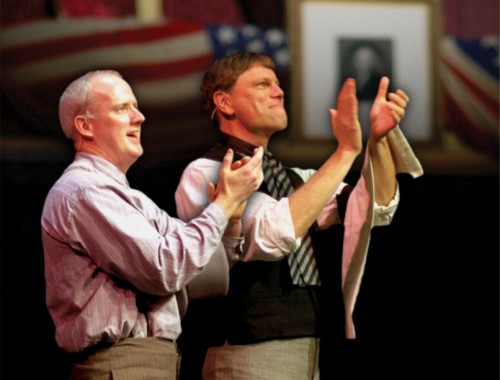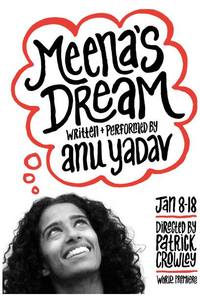 MEENA'S DREAM Written and performed by Anu Yadav Directed by Patrick Crowley Music by Anjna Swaminathan, Rajna Swaminathan, and Sam McCormally January 8-18, 2014 Click here for a full list of performance dates and here for ticketing information About the Play During the day, nine-year-old Meena wishes that her mother could get well; and by night, the Hindu God Lord Krishna appears, entreating Meena's help in his war against the Worry Machine. Meena's Dream creates a fantastical world through storytelling and live music, from South Indian classical to indie folk. 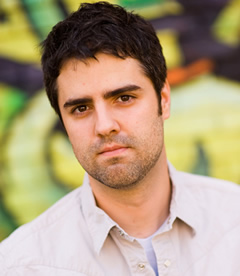 "Meena's Dream is, in a lot of ways, exactly the type of show Forum has been evolving to produce. We've been scratching and searching for the the type of plays and artists that best achieve our mission and these past few seasons have been a real revelation. Forum's highest priority to is to create and present theatre that has real relevance and connections to our audience's lives. In many ways, Meena is just that type of play. It's a beautifully theatrical work that melds the fantastical to a true emotional core. It takes the viewer on a wild trip that feels a millions miles away and lives in your guts at the same time. I've known and admired Anu and her work for many years and it has been an absolute honor and privilege that we get to produce her show. I have the utmost respect and awe with her voice and her talent." Michael Dove, Artistic Director of Forum Theatre 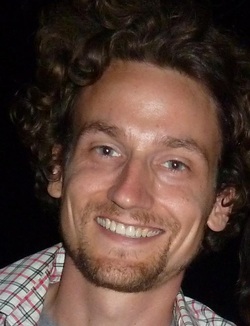 "I think Anu has found a sweet spot with this play in that it has an earnest political message, but it is mitigated by the messenger, a young Indian American girl, Meena. The incredible original music created for the show, the imaginative whimsy, and Anu's knack for funny, revealing and nuanced character portrayals are the spoonful of sugar that makes the medicine go down. Meena argues that there is enough in the world so that we can all have what we need, and that fundamentally our problems flow from a lack of imagination. Meena refuses to be victimized by injustice and dares to dream of something better. While many of our most beloved protagonists today are dark anti-heroes, Meena stands center stage as a young, wholesome heroine we can all root for." Patrick Crowley, Director of Meena's Dream. 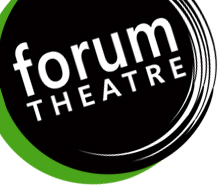 Forum Theatre produces adventurous, relevant, and challenging plays from a diversity of voices that inspire discussion and build community -- and that are accessible, affordable, and entertaining. Since Forum Theatre’s inception, we have aimed to be both the home for stories that provoke discussion and the place to host that discussion. We want our plays to be a conversation with the audience. We tell stories about who we are as a local, national, and global community. So what is a Forum show? That’s never been the easiest thing to describe, but a few things tend to always be true: A Forum show asks big questions. A Forum show is intricate and challenging, but has a big heart at its center. And a Forum show gives you something to think about and a lot to talk about.
0 Comments
This video is powerful and evocative. It moved me to tears.
Here's how it is described: "A blind and homeless man sits by the side of a building hoping for some spare change, but no one seems to notice him or care. A stranger walks by and changes the message on his sign and suddenly the homeless man's fortunes change." But it's not a PSA in support and awareness of the homeless and/or disabled communities. It's an ad for online copy writers. Thank you, A. Rey Pamatmat for sharing this useful bit of dramaturgy. Confession: I silenced the little voice in my head that said, "Wait a minute, she didn't even ask if she could change his sign." I did so, because I found the compassion of people giving so touching. I have a heightened awareness to the homeless community right now for a number of reasons:
Mind you, using the poor and disenfranchised to evoke compassion is nothing new and it's where things get tricky. Also, let's contemplate this woman's action to change his sign. It reminds me of a scene in Episode Six of the ever brilliant House of Cards when Claire Underwood sees a homeless man perched outside of her office and hands him a $20 bill. She tells him there is a cafe up the street and walks away. We see him look at the money, but he does not move. The next day, he returns the $20 bill to her as a beautifully folded crane. She takes the crane, contemplates it and learns how to make cranes of her own. I'd also like to think that Claire sees this man as a man and as someone for whom she should not make assumptions. Also, I hope we get more of him in this next season. There is a space where the women in the video's actions could be applauded. She didn't just walk by or drop of a few coins. As someone good with words, this is what she could do or give. In my own arrogance, I have seen the signs of the homeless or experienced the pitches, and wanted to offer a few tweaks. Historically, much has been made of this space of not just giving, but of doing what you can. Colonialism is a result of this space as are the many welfare programs in this country. And it is here where I want to focus this conversation, this space of knowing what is best for a community and therefore providing a service. It's troublesome as it relates to the work we do in theatre when we provide artistic programming FOR a community and not WITH the community. With theatre, we are creating what we believe is a deeply powerful, important, and meaningful experience. But within that is the knowledge/working assumption that the community doesn't know what it needs and/or that it needs to be taught, and certainly that it needs to be taught a standard of excellence. But we are surprised and disappointed when the community doesn't show up, and because of our business model and need for sustainability, we are also panicked. We do our best to try to engage with the audience: surveys, post show discussions, marketing, etc. But something is missing. There is a disconnect in all of this somewhere. I decided to write about this, because I've been a part of conversations about how in the nonprofit theatre world, we serve our communities by providing artistic programming for them versus with them. This is subtle, but marked distinction. Also, I've been a part of conversations about how theatres use people of color in their marketing, but their programming and artistic/administrative staff do not reflect the same level of diversity. There is a disconnect between the mission statement, the programming, and the community, which could account for dwindling audiences, the continued lack of diversity, and no doubt contributes to unstable capitalization. Click here to learn more about how all of this is intertwined. There's so much to unpack here. I thought about deleting the video from my Facebook page, but felt the conversation was relevant and important to have. I look forward to hearing your thoughts. 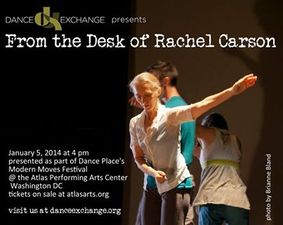 As I mentioned, I've been collaborating with Cassie Meador (Artistic Director and Choreographer), Ouida Maedel (Production Manager), Stowe Nelson (Sound Designer), Cheryl Patton Wu (Costume Designer) and Ben Levine (Lighting Designer) along with dancers Gabriela Fernandez-Coffey, Carli Mareneck, and Dance Exchange Resident Artists Shula Strassfeld and Matthew Cumbie to bring FROM THE DESK OF RACHEL CARSON to life. Working with these extraordinary, talented and dedicated artists has been such a rich, rewarding and stimulating experience. When Cassie and Ouida approached me about the collaboration, they told me that they had attended a performance THE HAMPTON YEARS at Theater J. They enjoyed the production and appreciated how I had incorporated history into the dramatic narrative. They weren't to know, until that meeting, that I had great respect for Rachel Carson and her work, and also a passion for dance dramaturgy. I knew right away that I wanted to work with Dance Exchange on this powerful and important new work. FROM THE DESK OF RACHEL CARSON was a devised piece from the beginning. We knew that we wanted to explore the life, legacy and impact of Rachel Carson's writing through movement, sound, and text. We also knew that we wanted this exploration to be deeply personal, immediate and urgent. Our journey brought together a fusion of artists from the worlds of dance, sound, lighting, writing, dramaturgy, and acting. Our time each day began with movement and conversation about the work and the day's intention. We then examined Rachel's writing and created our own. We build movement around the text and then reflected on what we wanted to keep and what we let fall away. We worked at a steady, determined and productive pace. I'm honored and delighted to share our work today, but I'm also quite sad to say good-bye to them. I've included everyone's bios and headshots along with a few more photos from our time together. Meet the Artists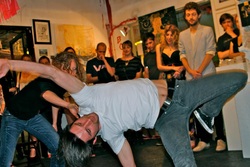 Matthew Cumbie is a professional dance artist and collaborator who hails from Houston, Texas, and came to dance in college. Now based in Washington, DC, he has been a company member with Keith Thompson/dancetactics performance group (2011-2012), and has performed with Mark Dendy, the Von Howard Project, Sarah Gamblin, Jordan Fuchs, jhon stronks, Paloma McGregor, and Jill Sigman/thinkdance. He began working with Dance Exchange in 2012. As a company member with Dance Exchange, he works in and out of doors in collaborative art-making and creative research to further develop our understanding of ourselves, our community, and the world around us. He has been on faculty at Texas Woman’s University and Queensborough Community College, and teaches at festivals and schools across the country. He holds an MFA in dance from Texas Woman’s University and is a Resident Artist and the Education Coordinator for Dance Exchange. 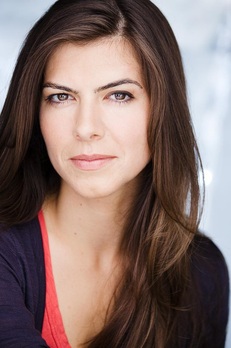 Gabriela Fernandez-Coffey is a DC based actress and mover, thrilled to be joining Dance Exchange on this project. Recent credits include Detroit, Gruesome Playground Injuries, and Stunning at Woolly Mammoth, where she is also a company member; The Motherfucker with the Hat at Studio Theatre; Divorciadas, evangelicas, y vegetarianas and Cita a ciegas at GALA Hispanic Theatre; The Lyons and How the Garcia Girls Lost Their Accents at Round House Theatre; and After the Fall at Theatre J, for which she won a Helen Hayes Award for Outstanding Supporting Actress. She is a graduate of NYU's Tisch School of the Arts. 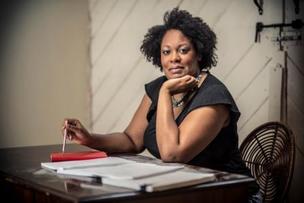 Jacqueline E. Lawton was named one of 30 of the nation's leading black playwrights by Arena Stage’s American Voices New Play Institute. Her plays include: Anna K; Blood-bound and Tongue-tied; Deep Belly Beautiful;The Devil’s Sweet Water; The Hampton Years; Ira Aldridge: the African Roscius; Lions of Industry, Mothers of Invention; Love Brothers Serenade (2013 semi-finalist for the Eugene O’Neill Theater Center’s National Playwrights Conference), Mad Breed, and Our Man Beverly Snow. Ms. Lawton received her MFA in Playwriting from the University of Texas at Austin, where she was a James A. Michener Fellow. She participated in the Kennedy Center’s Playwrights’ Intensive (2002) and World Interplay (2003). She is a 2012 TCG Young Leaders of Color award recipient and a National New Play Network (NNPN) Playwright Alumna. A member of Arena Stage's Playwright's Arena and the Dramatist Guild of America, Ms. Lawton currently resides in Washington, D.C. 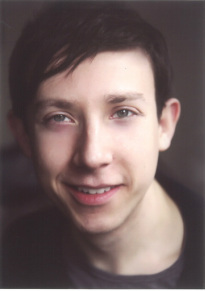 Since 2007, Ben Levine has worked as the Technical Director/Theater Manager of Dance Place. Passionate about modern dance and experimental theater, Ben aims to combine his dance and theater training with his knowledge of theater technology to bring choreographic works to full realization. As Resident Lighting Designer at Dance Place, he has had the opportunity to design lights and stage-manage for many DC-based and touring dance companies including Wally Cardona, Ballet Folklórico Cutumba, Marc Bamuthi Joseph, Step Afrika, Rennie Harris Puremovement, City Dance Ensemble, Tiffany Mills Company, Lionel Popkin, Olive Dance Theatre, Universes, Nejla Yatkin/NY2Dance, Dana Tai Soon Burgess & Co, ClancyWorks, Farafina Kan, Next Reflex Dance Collective, Kim Gibilisco Dances, EDGEWORKS Dance Theater, and Rebollar Dance. Ben holds a degree in Theater Arts and Mathematics from Drew University.  Since 2011, Ouida Maedel has worked as the Partnerships and Production Manager at Dance Exchange, where her first major project was to produce Cassie Meador’s 500-mile walk and community engagement tour to a coal mine in West Virginia during How To Lose a Mountain‘s development phase. Passionate about the use of the performing arts for social change, Ouida has performed with a traveling theatre troupe in Zambia, and has worked in conflict transformation and public health in Ghana and in the U.S., activating theatre and creative movement for education and civil society engagement. Ouida has performed in, or stage managed a multitude of productions in DC and in New York, she holds a BA from Sarah Lawrence College, an MA in International Communication and Arts Management from American University, where she was a teaching and research fellow, and she currently serves as a Helen Hayes Award Judge. 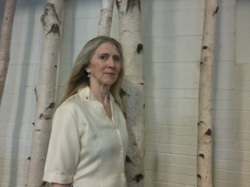 Carli Mareneck holds a BFA in Dance from the University of Utah. She has taught children and adults in Lewisburg, WV since 1982. As a founding member of the Trillium Performing Arts Collective she continues to broaden community involvement with modern dance through her teaching, choreography, and performance. Her work has been featured at James Madison University, Hollins University, Yes, Virginia Dance, Goose Route, FestivALL, on tour with the West Virginia Dance Company and in New York with Monica Bill Barnes at Context Theater and Dancespace. In addition to her work as a dance professional, Carli teachers workshops on Learning Through the Arts for public schools, conferences, and teacher trainings. 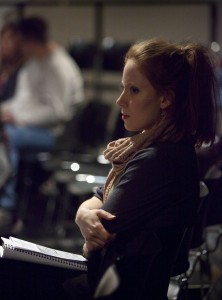 Cassie Meador is a choreographer, performer, educator and Artistic Director of the Dance Exchange. Her work is imbued with a passion for her surroundings, a belief in the human capacity for change, and a conviction that art can be a potent form of research and communication. In recent years, Cassie’s choreographic investigations have tackled numerous social and environmental issues through the synthesis of movement, sound, and striking visual images. She was recently selected as the sole artist representative to a research initiative of the International Human Dimensions Program on Global Environmental Change. She is an Associate Artist of the Center for Creative Research, and her writing has been commissioned by Dance Magazine and the National Association for Interpretation. Cassie received her B.F.A. in dance from The Ohio State University. She joined the performing company of the Dance Exchange in 2002 and assumed the role of Artistic Director in 2011. 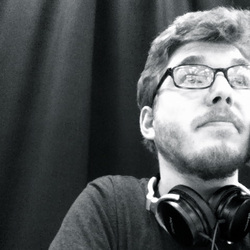 Stowe Nelson is a sound designer and engineer who specializes in new and devised work. Recent & upcoming designs include: Crimes of the Heart (Everyman); Take Me Home (Other Forces Festival); A Civil War Christmas (Center Stage); Buyer & Cellar (Barrow Street Theatre): How to Lose a Mountain (Dance Exchange); The Aliens (Studio Theatre); Cafe Variations (SITI Company). As a company member of The Mad Ones, he has designed The Tremendous Tremendous, the as-yet-untitledBiopic Project and Samuel & Alasdair: A Personal History of the Robot War for which he won the 2010 NYIT Award for Outstanding Sound Design and was nominated for a Drama Desk in 2012. 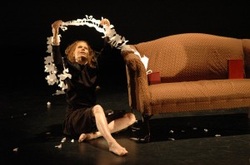 Shula Strassfeld began dancing “too late” and has been dancing ever since. After training in NY with members of the Jose Limon Company and Collete Barry and Susan Klein, Shula lived in the US, Israel and Canada. She has danced with choreographers Susan Rose, Joy Kellman, Flora Cushman, Mirali Sharon, Jan Van Dyke and Sandra Neels. Shula has an MA in Dance Education from Columbia University and has taught at Trinity College (Hartford CT), Rubin Academy of the Hebrew University, York University and at the professional schools of Canadian Ballet Theatre, Ballet Creole and the Kibbutz Dance Company. She joined Dance Exchange in 2007. 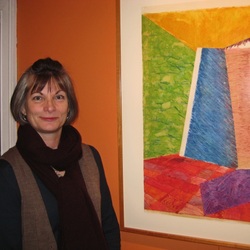 Cheryl Patton Wu freelances as a costume designer in the Washington Metro area. She was a founding artist, Costume Director, and Costume Designer at 1st Stage in Tysons Corner designing twenty productions in their first three seasons. Credits include Side Man, Three Bears, Parfumerie, Don’t Dress for Dinner, By the Bog of Cats, and The Game of Love and Chance. Additionally, The Last Five Years (Limelight Theatre); Sister Mary Ignatius Explains It All For You (The American Century Theatre); and The Rocky Horror Picture Show (Washington Savoyards), as well as Sweet Charity, The Drowsy Chaperone, Cabaret, La Voix Humaine, Suor Angelica, Trouble in Tahiti, and The Medium for The Catholic University of America. Cheryl is thrilled to be back working with the talented artists of Dance Exchange, where, she designed the world premier of How to Lose a Mountain and won the 2013 DC Dance Award for Best Overall Production. The Modern Moves Festival showcases twelve world-class contemporary dance companies that call DC home, each with different points of view. Experience the rich field of modern dance in the Greater DC Metropolitan area! Modern Moves Festival Sunday, January 5 at 4:00pm At the Atlas Performing Arts Center 1333 H St NE, Washington, DC 20002 Saturday, January 4 at 8pm: alight dance theater, Bowen McCauley Dance , Christopher K. Morgan & Artists, Dana Tai Soon Burgess & Company , Daniel Burkholder/The PlayGround , Human Landscape Dance Sunday, January 5 at 4pm: Company E, Dance Exchange, Jane Franklin Dance, Naoko Maeshiba/Kibism , Rebollar Dance, VTDance/Vincent E. Thomas For venue transportation and parking details, click here. For information about the entire festival, click here. Online sales are sold out, please call 202.399.7993 for more information.  Dance Exchange is an intergenerational company of artists that creates dance and engages people in making art. We serve as an incubator for creative research, bringing ideas to action through collaborations that range from experts in the field of dance to unexpected movers and makers. Through these exchanges we stretch the boundaries between the studio, stage, and other environments to make dances that are rooted in the particularity of people and place. We recognize the body and movement as an essential resource to understand and investigate across disciplines. Through local, national, international, and online projects we gather and create community to contribute to a healthy and more sustainable environment. “The more clearly we can focus our attention on the wonders and realities of the universe about us, the less taste we shall have for destruction” —Rachel Carson I recently spoke with Artistic Director Cassie Meador and Partnerships and Production Manager Ouida Maedel about the history and legacy of Dance Exchange and the inspiration for FROM THE DESK OF RACHEL CARSON, an excerpt of which is being presented tomorrow as part of Dance Place's Modern Moves Festival at the Atlas Performing Arts Center. Here’s our conversation. JACQUELINE LAWTON: First, tell me about Dance Exchange. DANCE EXCHANGE: As a cornerstone of the DC dance community, Dance Exchange is entering our 38th year in 2014. We are known for work that brings together communities. We invite our audiences to ask questions, explore big ideas, and tell stories. We are also interested in finding ways to use movement and dance as a medium for creative exploration beyond the stage. JL: What excited you about taking part in Dance Place’s Modern Moves Festival? DE: Dance Exchange is not only a producing company in the DC area, but it also a home for local artists. Many of the performers in the festival, even those dancing with other companies, come to our classes, workshops, and events. This opportunity allows us to perform alongside one another and share our creative practices. In an extraordinary way, the DC dance community represents a diverse range of work. Festivals like these offer a rare and wonderful opportunity to support and celebrate each other. They also allow us to engage audiences in a depth of rich cultural experiences in our region. 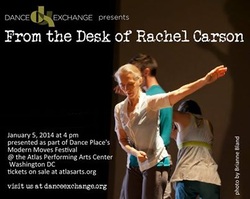 JL: Tell us more about FROM THE DESK OF RACHEL CARSON? What inspired this work? DE: FROM THE DESK OF RACHEL CARSON is a new devised work that explores the life, legacy and career of pioneering writer/ecologist Rachel Carson (1907-1964). Carson’s work greatly influenced the ever-growing public awareness of how humans impact the natural world. Cassie began exploring some of the Rachel Carson themes in our 2013 Summer Institute, which culminated in a performance at ADI in June 2013. Our institutes are a chance for us to meet new-to-Dance Exchange movers. We met several of the performers in this work - Matthew Cumbie, Gabriela Fernandez-Coffey, and Carli Mareneck – at past institutes. For this stage presentation, Cassie Meador has assembled a dynamic creative team, including new collaborators playwright/dramaturg Jacqueline E. Lawton and performers Gabriela Fernandez-Coffey and Carli Maraneck, alongside Dance Exchange veterans sound designer Stowe Nelson, costumer Cheryl Patton Wu and resident artists Matthew Cumbie and Shula Strassfeld. JL: The performance on Sunday is an excerpt from a larger piece still in development. Can you tell me more about the next steps? DE: In addition to this performance, this multi-year project will include the co-creation of site-specific work with communities in outdoor residency sites. At the heart of the project is a handcrafted desk, designed by Zeke Leonard that will function as an installation focus and site intervention. At times the desk will appear in locations that inspired Carson's writing and at other times at sites of civic encounter. Gathering writers, artists, and environmental leaders, the creative outcomes to each residency site will offer an opportunity to explore the writing of Rachel Carson as the impetus for current day action, reflection, and artistic responses on a changing environment. JL: FROM THE DESK OF RACHEL CARSON feature more text that previous work. How does it continue to align with Dance Exchange’s mission? DE: As for how it is representative of Dance Exchange’s choreography and pedagogy-- it's a multiyear, muti-disciplinary, multi-layered project. As our founder, Liz Lerman, has said "“Ask a big enough question and you will need more than one discipline to answer it.” As such, this project has brought together environmentalists, writers, actors, visual artists, theatre designers, and dancers. As the work continues to grow and take shape, we expect the breadth and depth to expand from here. JL: What's next for Dance Exchange? What are you excited about in the coming year? DE: We have a number of upcoming projects at Dance Exchange for 2014. Here are a few highlights: The Rachel Carson project is at the beginning stages of development. We received an NEA Our Town grant to bring artistic practices to the New Hampshire Avenue corridor in Takoma Park, which is undergoing a city-wide multi-year development. We will continue to have our HOME series, classes, and institutes at Dance Exchange (including a Winter Institute Jan 9-12 that will give participants tools for working in communities). And we're working with the Embrey Family Foundation on a commission that will be presented in conjunction with Race Forward's Facing Race Conference in Dallas, Texas, November 13-15, 2014. The Modern Moves Festival showcases twelve world-class contemporary dance companies that call DC home, each with different points of view. Experience the rich field of modern dance in the Greater DC Metropolitan area! Modern Moves Festival Sunday, January 5 at 4:00pm At the Atlas Performing Arts Center 1333 H St NE, Washington, DC 20002 Saturday, January 4 at 8pm: alight dance theater, Bowen McCauley Dance , Christopher K. Morgan & Artists, Dana Tai Soon Burgess & Company , Daniel Burkholder/The PlayGround , Human Landscape Dance Sunday, January 5 at 4pm: Company E, Dance Exchange, Jane Franklin Dance, Naoko Maeshiba/Kibism , Rebollar Dance, VTDance/Vincent E. Thomas For venue transportation and parking details, click here. For information about the entire festival, click here. Online sales are sold out, please call 202.399.7993 for more information.  Dance Exchange is an intergenerational company of artists that creates dance and engages people in making art. We serve as an incubator for creative research, bringing ideas to action through collaborations that range from experts in the field of dance to unexpected movers and makers. Through these exchanges we stretch the boundaries between the studio, stage, and other environments to make dances that are rooted in the particularity of people and place. We recognize the body and movement as an essential resource to understand and investigate across disciplines. Through local, national, international, and online projects we gather and create community to contribute to a healthy and more sustainable environment. 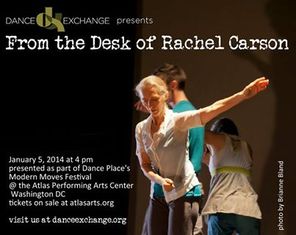 On Sunday, January 5th at 4:00pm, Dance Exchange presents FROM THE DESK OF RACHEL CARSON, which celebrates the life, career and legacy of environmentalist Rachel Carson as part of Dance Place's Modern Moves Festival at the Atlas Performing Arts Center. For the past few months, I've been collaborating with Cassie Meador (Artistic Director and Choreographer), Ouida Maedel (Production Manager), Stowe Nelson (Sound Designer), Cheryl Patton Wu (Costume Designer) and Ben Levine (Lighting Designer) along with dancers Gabriela Fernandez-Coffey, Carli Mareneck, and Dance Exchange Resident Artists Shula Strassfeld and Matthew Cumbie to bring this devised work to life. As many of you know, I grew up in a farming community in East Texas, where there were more cows than people. We had chickens and goats, and I spent a summer learning how to train horses. Each year, we grew a large vegetable garden and had several fruit trees in the yard: pear, peach, cherry and pomegranate. When I was young, I was fascinated by insects and snakes and climbed trees like the Von Trapps! I loved reading the U.S. Fish and Wildlife newsletter and tried to learned the names of as many birds, trees, and wildflowers as I could find. 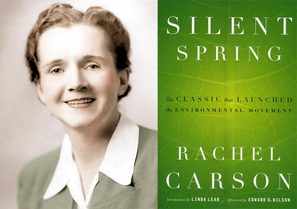 As I got older, I never lost my love for the nature. I remain passionate about the environment, and about efforts of conservation and renewal. I first read Rachel Carson's Silent Spring years ago while serving as dramaturg on a play with Active Cultures Theatre. I was moved by Carson’s passion, intelligence and insight for the environment. When first published, her work was controversial. Many tried to discredit her and her findings, but she was well-researched, thorough and wrote about facts. I admired her strength, determination and tenacity. As I consider the role and impact that advances in science have had on our lives, I am struck by its duality: there is immeasurable good and irreversible damage. For instance, if it were not for the coal fueled Capitol Power Plant that provides steam and cooled water for the United States Capitol, the Supreme Court, the Library of Congress and 19 other buildings in the Capitol Complex, I probably wouldn't need daily doses of three medications just to breathe. While it's never simply a question of whether the good or convenient outweighs the bad or destructive, there is an undeniable price to progress of advancements of science and technology. This complexity is what makes Dance Exchange's From the Desk of Rachel Carson such an important, powerful and worthwhile work. It’s a story that must be told. We have a responsibility to do as much as we can to repair the damage done to environment, so that those who live after us will be able to enjoy the splendor and wonder of the world. The Modern Moves Festival showcases twelve world-class contemporary dance companies that call DC home, each with different points of view. Experience the rich field of modern dance in the Greater DC Metropolitan area! Modern Moves Festival Sunday, January 5 at 4:00pm At the Atlas Performing Arts Center 1333 H St NE, Washington, DC 20002 Saturday, January 4 at 8pm: alight dance theater, Bowen McCauley Dance , Christopher K. Morgan & Artists, Dana Tai Soon Burgess & Company , Daniel Burkholder/The PlayGround , Human Landscape Dance Sunday, January 5 at 4pm: Company E, Dance Exchange, Jane Franklin Dance, Naoko Maeshiba/Kibism , Rebollar Dance, VTDance/Vincent E. Thomas For venue transportation and parking details, click here. For information about the entire festival, click here. Online sales are sold out, call 202.399.7993 for more information.  Dance Exchange is an intergenerational company of artists that creates dance and engages people in making art. We serve as an incubator for creative research, bringing ideas to action through collaborations that range from experts in the field of dance to unexpected movers and makers. Through these exchanges we stretch the boundaries between the studio, stage, and other environments to make dances that are rooted in the particularity of people and place. We recognize the body and movement as an essential resource to understand and investigate across disciplines. Through local, national, international, and online projects we gather and create community to contribute to a healthy and more sustainable environment. JACQUELINE LAWTON: How long have you lived and worked as a stage manager in DC? What brought you here? Why have you stayed?
OUIDA MAEDEL: DC is my home town. I feel very fortunate to have grown up here because I’ve always had terrific access to the performing arts, to an incredibly diverse community of mentors and friends from all fields and backgrounds, to national and international news and events, and to an understanding of the complexities and social inequalities that are so often amplified in urban environments. I went to college in New York and worked as a stage manager and as an actor there for a while, and I’m sure many would have said that I was on a successful and upwardly mobile path as a theatre professional in NYC. But, I became deeply disillusioned with the theatre business – I think because of the pervasive commercialism of the industry in New York, because I felt powerless and like an object of use for the agendas of others, because I felt like I was not living my life in service of humanity and making the world a better place, and because I was sick of living on ramen and struggling to pay the rent. So, I decided to leave the theatre and go to graduate school for and pursue a career in international development. I came back to DC in 2008 as a graduate fellow at American University. My foray into international affairs was a welcome detour that taught me a lot about myself and my areas of interest – but about my areas of interest as an artist. I discovered that I’m a theatre person and that I will always be a theatre person. Instead of walking away, I needed to transform my relationship to the theatre and figure out how I could put myself in a place of power to cultivate opportunities not only for myself, but for my fellow artists. So, I added on a graduate certificate in Arts Management, and threw my hat into every ring I could find regarding DC theatre internship, fellowship, and employment opportunities that I could work into my graduate school schedule. I quickly discovered that I would not be able to rest on the laurels of my NYC reputation in DC, because I think the relationship between NYC and DC theatre professionals is quite a bit contentious. I landed a position at Capital Fringe, working on the programming team of the 2010 festival, and I fell in love with the theatre again. I fell so in love that I would stay there for 24 hours at a time cleaning, painting flats and stages, carrying equipment, and doing everything that needed to be done in addition to programming. The Producing Artistic Director handed me the opportunity to stage manage the press preview, and the combination of my duties at Fringe was eye opening – I was able to create opportunities for and cultivate relationships with a diverse community of artists, work as a member of a strong production team, and program the arc of the festival. I was able to be of service and promote issue-driven, experimental theatre that needed to be seen. This was a different world than non-union chorus auditions and stage managing for directors who were more concerned with which NYC theatre glitterati would come to opening night than with the rehearsal process. After grad school, I intended to move straight back to NYC, but the economy crashed and almost everyone I knew in the city lost their jobs, and I began to have all of these opportunities in DC, so I stayed. I am currently the Partnerships and Production Manager at Dance Exchange, where I stage manage as well. JL: What excites you most about being a stage manager? What do you feel your greatest challenges are? OM: Well, I think what excites me most about stage management stems from the fact that I consider stage management to be deeply artistic. I am excited by the relationships that emerge from my investment in every aspect of the process, the imperative to foster clear communication between all parties to ensure an artistically cohesive and spectacular outcome, and the skill to anticipate and meet the needs of others. A lot of people talk about how much they hate tech week, but I love tech week. Everyone finally puts their heads together and leverages all of their talents to ensure that every detail is executed to serve the arc of the story and the emotional journey the audience may expect, or not expect. And the audience is coming, whether you are ready or not. I love the feeling I get when I walk into a theatre. The sense of possibility, transformation, desire to succeed, and love for the craft embodied by the people who were there before you and will be there after you is palpable. It is humbling to be a part of that, and it is a privilege. As I change, grow, and learn as a stage manager and as a performing arts professional in general, the challenges also shift. When I was younger, I found it challenging to give instructions to and feel respected by members of the creative team, cast, and crew, or to say “no” to the director. Granted, I was often in situations where I would be a decade or two younger than anyone else on the project, and/or the only woman, and/or the only person of color, and I was greeted with a lot of surprise that I was really the one who was so highly recommended. That is often still the case, but it doesn’t get to me anymore. Right now, I am at Dance Exchange full time. I love working in contemporary dance, but shifting from a mindset of stage managing a straight play that has already been written to a modern dance work that is being created in the room is very different. It took me a long time to figure out how to take blocking notes effectively and why everything needed to be filmed, and why the set design process wasn’t complete before the first rehearsals. In general, theatre is much more production oriented than dance. I am the only full time production person at Dance Exchange, and I also hold a lot of other non-production related responsibilities. I am the only production manager, the only stage manager, the only company manager, the only vocal coach, one of the grant writers, and on and on. This is an enormous challenge because I love working as a member of a large production team, and that is the way I was trained and have worked before. In situations where a stage manager would consult with an ASM or their PM, I am left consulting myself. I have to make sure I take very good care of myself, and I’ve had to figure out how I can do two or three person jobs – like taping out a floor in the rehearsal room – alone. In some ways, these challenges have been liberating because I cannot indulge my perfectionist side. I have to mindfully let go of some of the things I would do as a stage manager as part of a larger production team, I have to prioritize and delegate. That said, I love where I work and I love what I do, so these are welcome challenges. I think these challenges are recognizable across the performing arts – many theatres have laid off permanent full time production positions in recent years in favor of seasonal positions or combining and eliminating jobs. JL: What traits do you feel a successful Stage Manager should have to support the health and growth of a production? OM: I think a successful stage manager has to be an incredible, selfless listener, who is inquisitive, straight forward, and a strong advocate and partner. A successful stage manager is obliged to take care of her director, designers, crew, and her performers, whether or not they are returning the favor. It is best if she loves taking care of other people, and hates being taken care of herself. To support the health and growth of a production, you have to understand the balance between putting your own artistic proclivities and opinions aside, but making them known when necessary. There is a fine balance between holding your tongue and serving the artistic needs of a production – regardless of whether or not you are interested in the content or aesthetic of a work – and speaking up when a suggestion or idea from any involved party will undermine the health and growth of a production – whether that is from an artistic perspective, or because it is not feasible from a financial or production perspective. Another way I think of this is as if I am being the container for the work, and holding a nurturing space in which it develops. Defining what is outside of the container is as important as defining what is inside. You always have to know what time it is. You should be able to sense the duration of a minute, five minutes, and fifteen minutes in your body, without looking at a clock. Watch everything very carefully and take a lot of notes. You constantly have to work on cultivating the ability to pay attention deeply to the details of a lot of things happening at the same time, and the ability to entertain all questions and concerns, from the ridiculous to the very serious. Have a cordial relationship with everyone, regardless of how you feel about them personally. In that way, it is kind of like being a server at a fine dining restaurant. Most importantly – be honest. When you don’t know the answer to a question or don’t know how to solve a problem, say so, and call someone who does. And, carve out “alone time” for yourself (with a glass of wine), personal practices outside of the theatre (I do a lot of yoga), and develop friendships with people who have “normal” jobs (not hard to do in DC, where everyone works for the government). All of that keeps me grounded, and being grounded serves my professional life. JL: Does your work as a Stage Manager pay the bills? If not, what other work do you do and how do you find a balance? OM: Well, my full time job at Dance Exchange pays some of the bills. I think anyone who works in the performing arts these days who has a full time job with a salary and benefits, even if it doesn’t exactly cover all costs of living, is very fortunate. And it is too bad that we have to feel so fortunate, but that is just how things are in this industry because of the international political, economic, and social priorities the wealthy and the powerful dictate. Dance Exchange is currently my primary employment, but I’ve also been a freelance grant writer, stage manager, actor, teaching artist, teaching assistant in international affairs, waitress, bartender. I have recently developed an interest in directing, which I am excited to explore further. I had the opportunity to work as a co-director for “The Parlour” (an immersive environment for the audience) as part of Pinky Swear Productions’ Bondage at Anacostia Playhouse in November, and that was really awesome. I will say – and this may be a vestige from my NYC life – that I really do take a business-minded approach to my work in the performing arts. I think everyone should, though it is challenging because so much of the work is deeply personal, and we’re all in it for the love. This isn’t the kind of work anyone gets in to for the money. But since we’re in it for the love, we have to be all the more ambitious and strategic. I always have upwardly mobile career goals, and a strategy in mind to maximize my earning potential in this field. I think everyone in the arts has to constantly evaluate their personal goals, the goals of their organization, and how that relates to work-life balance and their personal long-term financial planning. It is important to develop the ability to say “no” when something does not serve you, or to walk away when you have gotten all you’re going to get from an opportunity. I know tons of performing arts professionals who are in their forties and fifties, have no insurance, no retirement plan, no assets to speak of, and no idea what they are going to do aside from hope that they might still make it big. Going that way is not an option for me, even if it means modifying dreams to achieve the ultimate goal of gainful employment in the professional performing arts. I hate that we live in such a capitalist society, but we do, and I can’t change that. What I can do is transform my relationship to capitalism, and think and plan like an investment banker or a CEO of a major company so that I can come out on top – and maybe even buy a house one day, or at least pay off my medical bills and student loan debt. Life is expensive – and the ability to work very crazy schedules for very little money, and do hard labor on production after production – no matter how much you love it – is fleeting. Figure out how you can sustain yourself and climb the ladder. Cutthroat and cold? Maybe. But that’s the business if you want to make a lifelong profession out of it that pays. JL: Looking at your body of work as a stage manager in this community, how conscious are you of selecting plays by women or people of color when deciding your season? OM: Since I’m not doing so much freelancing, currently, and am working more in devised contemporary dance than in theatre at the moment, I don’t really have so much of a say regarding the arc of a season of shows I work on. In the production management side of my job, I do try to consider the diversity of my design team and I try to push my artistic director to consider that in casting. I am deeply conscious of how plays by women and/or people of color are produced around town, as well as how plays by anyone are cast, and who is on stage management and design teams, who holds crew positions, and what the leadership of arts organizations look like. And frankly, I am quite dissatisfied. I believe in theatre because of its power to shed light on stories that are unseen and unheard, and its power to gather groups of diverse people from all backgrounds in the same room for a similar transformation and purpose. I think a lot of organizations are trying, but no one is really doing enough, and that is very close to doing nothing. I would add that not just the inclusion, but the equity of plays by women and people of color when compared to plays by the usual suspects is vital, and that we also need to consider physical and mental ability, sexual orientation, religious and spiritual diversity, ethnicity, age, and on and on. Good plays are specific and yet universal, and speak to everyone on some level. The development of a season arc must take the specific and the universal into account, and I want to see many different kinds of people – from the artistic director to the business manager to the overhire carpenter to the stagehand apprentice – represented. In whatever I do, I strive to embody that ethic. JL: How do you feel the DC theatre community has addressed the issues of race and gender parity? How has this particular issue impacted you and your ability to work? OM: From a production perspective, I think gender and racial parity in the theatre community are in a dire state of affairs, not just in DC, but on a national and perhaps international level. Over the course of my lifetime, I have stage managed, acted in, or otherwise worked on a multitude of productions at the academic, community, and professional levels across budget sizes and across artistic disciplines in DC and in NYC. I have only met two other female stage managers of color. I have never met any set designers, lighting designers, or costume designers who are women of color. I can count the number of white female set or lighting designers I’ve met on one hand. I have never met a sound designer who is not a white male. And I haven’t even covered property designers, choreographers, board ops, stagehands, stitchers and dressers, carpenters, painters, electricians, fly personnel, production managers, producers, company mangers, tour managers, and everybody else yet. I think there is a little bit more parity and awareness of diversity on the artistic and administrative end, but I don’t know of any women of color who are artistic or managing directors of any of the LORT theatres nationwide. I would love to find one. How can anyone consider that and say, “Isn’t that terrible and shouldn’t we do something about it?” But the fact is, very little is being done about it. There are a few programs here and there promoting people of color and women in the arts, but nothing so significant that it can tackle the lack of diversity I have encountered in my experience. I often walk into a production meeting and I am the only person there who is not a white male. It doesn’t bother me personally – some of my greatest advocates, mentors, friends, and people I love working with are white men. But I think as an international occupational field that claims to serve the human story, we should all be ashamed. Sometimes, I do wonder – when a lighting designer is really impressed that I expertly called a sequence of complex cues, or a set designer is astounded that I can use a scale ruler and tape out a set in a rehearsal room with complete accuracy and ease – what they expected. One of the things I love about stage management as opposed to performing is that the skills demonstrated speak for themselves. Being able to impress people easily and earn respect quickly isn’t such a bad thing, and it keeps you working. When I was avidly pursuing acting more than I am now, being a woman of color definitely effected my ability not only to work, but to be involved in work I was excited about and found compelling from an artistic perspective. The first time I encountered this was in college, when the chair of the theatre department called me in for a meeting in her office regarding a casting dilemma – one of the directors in the department wanted to cast me as one of the leads in a musical going up that season, and another director, who was a big deal in New York at the time, wanted to cast me in an experimental piece to be devised loosely connected to the Trojan War. He wanted a woman of color to play a Dido character, which would be somewhat of a peripheral role. She was honest and respectful, and I appreciated her consulting me. I was 18 or 19 at the time, and found the whole thing confusing – I still lived in a world where I thought I would be cast in roles because I was the best person for them. I told her I would do the musical, because it was a lead, had nothing to do with race, and because I love musicals and at the time wasn’t really interested in “experimental” theatre. I thought it was strange that this NYC bigshot couldn’t cast any one of the many 150 or so not black, very talented, actors in the department as a peripheral Dido. In NYC, I often found myself cast in roles that served the agenda of producers or directors. The only black person because we want to have a black person, or because we’re going to make a “statement” by having an all black cast for this play, or whatever. The last audition I went to in NYC was a non union chorus call for The Color Purple: The Musical. I remember feeling ill, sitting there, waiting to be seen. I wanted to perform, but at what cost? This was not living out my potential as a performer – the idea of playing a singing slave girl was artistic death. I walked out without being seen, and decided I was done with the theatre business. Honestly, I think it is a lot better in DC which is less driven by the commercial market or the off-Broadway prerogative to “make statements,” but I see a lot of actors of color playing racial stereotypes instead of rich, compelling characters. I see a lot of plays that are the “people of color” play for that season. That isn’t racial parity or very empowering either. JL: DC audiences are ... OM: People I spend a lot of time observing. Whenever I go to see a show, I love looking around and seeing who is in the audience and how audience members are reacting. I have a deep appreciation for DC audiences, because they honor my work and love what I love. We need to work on growing new audiences across all social strata. JL: DC actors, designers and directors are .. OM: Beautiful souls, hard working, friendly, willing to share their advice, experiences, and expertise and share opportunities. I think that theatres have a tendency though to favor certain actors, designers, and directors - which is incredible for those in favor – but it leaves a lot of very talented people who have immeasurable gifts to offer underemployed, underpaid, cynical, and likely to walk away from a field that needs their voices and their talents. JL: DC critics are ... OM: Seeing a lot and writing a lot without being too cynical, and are a vital part of the team and an important part of the conversation. I love good reviews and I love bad reviews. There is always an opportunity to learn, grow, and see what you are communicating and what you are not communicating to certain people. As long as a review is factually correct, I appreciate all opinions. Maybe it’s unfair of me to say something like that as a stage manager though – no one ever talks about us in reviews. JL: What advice do you have for an up and coming DC based stage manager? OM: I always hear that good stage managers are hard to find. I don’t know how true that is – I pride myself on being excellent no matter what and I demand excellence of the people I work with – or if they can’t be excellent, I work around them. But I would say it is important to identify what your strengths are as a stage manager and what your weaknesses are. Work on your weaknesses, and consider what kinds of shows you prefer working on, as well as what kind of support you need to have in place to do your best work. Never take anyone’s knowledge for granted. I’m still surprised when I have to explain to an arts professional what a stage manager does, but it happens. Show them that they’d be lost without you. Be brave and bold – work across disciplines, work at small theatres and large theatres, work in opera, dance, and performance art, immerse yourself in new technologies that you’re afraid of but make sure you hang on to your knowledge and experience of other technologies (I’ve seen the transition from lettered to numbered sound cues and the rise of QLab, the birth of projection as a design element, the death of the floppy disk to save light cues, and the shift from hand drawn blueprints to 3D computer modeling and I’m only 29 years old) and never think you’re too good to be someone’s ASM or to sweep and mop a floor or to hem an actor’s pants if you happen to have some costuming in your background. Do everything that needs to be done. The logistic success – and therefore the artistic success – of the show rests on your shoulders. Hone your multitasking skills, but know when too much is too much. Personally, I don’t do the best at identifying when too much is too much, but I have a few theatre and non-theatre friends who I ask to help me keep an eye out. Make sure someone has your back – it is especially great for this to be someone who knows the business but doesn’t work with you, so that they can offer insight and objectivity. Listen, learn, meet a lot of people, don’t let work come to you – go to it. Be kind to everyone, and be early and ready to leave late from every professional commitment. Those who know me well know that I make up for that by being late to and leaving early from most personal commitments. JL: What's next for you as a stage manager? Where can we keep up with your work? OM: Currently, I’m working on a 15 minute dance piece with Dance Exchange and Jacqueline E. Lawton, “From the Desk of Rachel Carson,” that will have its world premiere at Dance Place’s Modern Moves Festival at Atlas Performance Arts Center on January 5, 2014. We have a lot of projects cooking at Dance Exchange right now, so I’m not taking on a ton of other artistic or stage management work at the moment. Upcoming Dance Exchange projects include a NEA ArtPlace grant to do work along New Hampshire Avenue in Takoma Park, MD, and a commission from the Embrey Family Foundation in Dallas, TX to design and lead artistic initiatives for Dallas Faces Race, which will culminate in November 2014. I also curate Dance Exchange’s HOME Series at our studios in Takoma Park, MD on the third Thursday of each month. Go to www.danceexchange.org for more information. JACQUELINE LAWTON: How long have you lived and worked as a stage manager in DC? What brought you here? Why have you stayed?
KRISTY MATERO: I have been in DC since the summer of 2007. I moved here after an internship ended because my boyfriend (now my husband) was working at Arena Stage. I’d heard from a few people that DC was a great theatre town. I’ve stayed because I love the people here. JL: What excites you most about being a stage manager? What do you feel your greatest challenges are? KM: Every day you are wearing so many hats from office manager to psychologist to mom to artistic collaborator. That’s what makes it fun. Tech is my favorite. During that week everyone is finally in the room together and you can see how it all fits to make a beautiful whole. And I am in the privileged position of pulling the strings in that moment when all of the puzzle pieces come together. The biggest challenge for me right now is balancing motherhood and work, which is a clichéd challenge but very real. I have a 7 month old son and going back to work this fall was tough. I’ve learned that it is ok to cut myself some slack. I don’t need to feel guilty for taking my lunch break to eat and nap instead of having a sandwich over the copier or resetting the rehearsal room. It’s a balancing act for sure. JL: What traits do you feel a successful Stage Manager should have to support the health and growth of a production? KM: Every stage manager is a bit different in their approach to the job, just as every director, designer and actor comes into a production with their own process. There are plenty of tangibles that make a good stage manager such as organizational skills, tact, ability to multitask and great communication skills. One of the hardest and most important things for me is being able to keep the big picture in your mind while dealing with all of the hundreds of details that are thrown your way. There are also the intangibles which are just as important. Being able to read the room and know whether it’s time to be tough and push a little or sit back and let the magic happen is something that is learned over time and that I am still working on. JL: Does your work as a Stage Manager pay the bills? If not, what other work do you do and how do you find a balance? KM: In the past I have held all of the typical day jobs from cashier to server to a memorable 6 months as a dog walker. Right now, I am stage managing full time and it pays the bills if I’m very frugal. The rest of my time right now is spent with the baby. JL: Looking at your body of work as a stage manager in this community, how conscious are you of selecting plays by women or people of color when deciding your season? KM: Unfortunately, at this point in my career I am not yet in a position where I can accept or reject a job based on the script. Looking back through my productions, I do tend to return to companies who have a commitment to new work which more and more often includes that of women and people of color. JL: How do you feel the DC theatre community has addressed the issues of race and gender parity? How has this particular issue impacted you and your ability to work? KM: I think that the DC theatre community has become much more aware of race and gender in theatre even in the six years that I have been here. I do believe that DC audiences want to see a diversity of plays and some theatres are recognizing and meeting that need. I have been fortunate to work with many companies who have the flexibility in their mission statement to address those issues, but it’s certainly a work in progress. JL: DC audiences are ... KM: Loyal, enthusiastic, intelligent to a fault. JL: DC actors, designers and directors are... KM: Some of the most creative, driven, and fun people that I have had the privilege to work with. JL: DC critics are ... KM: A small part of the whole. I think that it’s a shame that they have the power to make or break a play that may be very good but not necessarily to one person’s taste. My relationship with reviews is mostly to keep them out of sight and out of mind. Most theaters have a no discussing reviews policy in the building or with the actors so we enforce that. JL: What advice do you have for an up and coming DC based stage managers? KM: Go see everything you can and talk to people. I have gotten most of my jobs in DC from word of mouth so don’t be afraid to approach other SMs, directors, designers and actors and tell them what you do. I can’t tell you the number of times that I have been asked if I know someone who could do this or that production. If you have another technical skill, use it. There are plenty of people who have moved into stage management from being a dresser, stage hand, house manager, or spot op. Also, send out your resume to everyone. You never know when your material will land on someone’s desk at just the moment when they are looking for someone to fill that empty slot in their season. JL: What's next for you as a stage manager? Where can we keep up with your work? KM: Although I mostly do plays, I actually have two operas coming up with the Washington National Opera at The Kennedy Center. I will be ASMing Moby Dick in February and The Magic Flute in May. JACQUELINE LAWTON: How long have you lived and worked as a stage manager in DC? What brought you here? Why have you stayed?
MARLEY GIGGEY: I have been working here for three and a half years. I grew up in Chantilly, Virginia and returned to the area after I finished college. I love the wide variety of theatres in DC and the range of shows that are produced. My husband is a wardrobe technician and we have both been very fortunate to work with many theatres here and have some really great experiences. JL: What excites you most about being a stage manager? What do you feel your greatest challenges are? MG: I love being able to be a part of a show from the first rehearsal until the final performance. Seeing the growth and evolution of a piece is really special. It’s one of the main things that drew me to stage management rather than other aspects of theatre where opening night is a finishing line of sorts. One of the greatest challenges is knowing when to delegate and let go of certain things and when to hold on to something and do it yourself. If you try to hold on to all the information and be the only person with answers you’re setting yourself up to burn out pretty quickly. Trusting other people and not micromanaging is crucial. JL: What traits do you feel a successful Stage Manager should have to support the health and growth of a production? MG: Positive attitude, great communication, and organization are all vital skills to possess. I have also found that a good sense of humor will go a long way. JL: Does your work as a Stage Manager pay the bills? If not, what other work do you do and how do you find a balance? MG: That tends to vary season to season or even production to production. I am certified to substitute teach in both Fairfax County and the District of Columbia and work mainly in high schools when I’m in between shows or need to supplement my paychecks. Finding balance is crucial. My husband and I will sit down with several calendars each spring and help each other plan out our seasons as best we can. We try to find the great harmony of jobs that are going to give us financial stability and gigs that are artistically fulfilling and exciting. JL: Looking at your body of work as a stage manager in this community, how conscious are you of selecting plays by women or people of color when deciding your season? MG: I do not have a direct impact on show selection for theatres as I am hired on for productions after seasons have been announced. Ideally I can spread around my season so that I can work on diverse shows, but I can only work on jobs that have been offered to me. JL: How do you feel the DC theatre community has addressed the issues of race and gender parity? How has this particular issue impacted you and your ability to work? MG: The fact that there has been so much discussion about these issues as of late is a solid step in the right direction, but there is still a ways to go. I have encountered several directors and production managers who will say they prefer working with one gender SM over another and whenever I hear that I always try to press for their reasoning. I typically find it’s an opinion based off of one negative past experience. We can have a conversation about it and then there’s not much else I can do other than do my job to the very best of my ability. JL: DC audiences are ... MG: More willing to take chances than they are sometimes given credit for. JL: DC actors, designers and directors are .. MG: A wonderfully creative and fun group of artists! JL: DC critics are ... MG: Necessary so we can reach a wider audience. JL: What advice do you have for an up and coming DC based stage managers? MG: See shows whenever and wherever you can! It can be challenging to find the time, but there is so much great work being produced in this town. JL: What's next for you as a stage manager? Where can we keep up with your work? MG: I am getting ready to open Twelfth Night at Synetic Theater on January 9th. After that I have two projects with Synetic I am very excited about, a remount of Hamlet… the rest is silence and Three Men in a Boat. JACQUELINE LAWTON: How long have you lived and worked as a stage manager in DC? What brought you here? Why have you stayed?
LYNN KRYNICKI: 14 years ago, then called, The Washington Opera had a job opening in their Stage Management Staff. I applied and have been with the company ever since. I get to work with a fantastic group of people, be at a Company that runs like a well-oiled machine and work on great quality products. Also, being at a Company that offers almost half a year of employment is rather enticing. Not may Opera Companies offer long contracts. I would not have stayed for 14 seasons if I did not love with whom I was working and at where I was working. JL: What excites you most about being a stage manager? What do you feel your greatest challenges are? LK: Calling a Show is the icing on the cake. Making the art actually happen is the great payoff after the weeks of hard work. Sometimes Shows are complicated, sometimes they are easy, but Calling perfect cues and hearing the audience response at the end is quite thrilling. The biggest challenges in the job are different with each production. There may be personality conflicts preventing people from working together. A production can be technically difficult or the dream for the production may be unatainable. Each time you try to facilitate the channels of communitcation to help the Team reach its goals. JL: What traits do you feel a successful Stage Manager should have to support the health and growth of a production? LK: A successful Stage Manager has strong organizational skills, people skills, communication skills, flexibility, time management skills, scheduling skills, the ability to read music (for Opera Stage Managing), creativity, leadership, empathy and compassion. JL: Does your work as a Stage Manager pay the bills? If not, what other work do you do and how do you find a balance? LK: My Stage Management work does pay the bills, however in order to make life more comfortable, I started to work as an Overhire Dresser for Local 772, the DC Chapter of the Wardrobe Union. This work keeps me in Theater and is flexible enough to work on my schedule when I am off contract. I can use my Stage Management Skills in my Dresser duties. JL: Looking at your body of work as a stage manager in this community, how conscious are you of selecting plays by women or people of color when deciding your season? LK: I am not involved with the selection of Works that Companies produce. Those decision are made before I am offered a contract. Fortunately, at my main place of employment, I am often asked what my preferences are for the coming season, but beyond that, I have no input. JL: How do you feel the DC theatre community has addressed the issues of race and gender parity? How has this particular issue impacted you and your ability to work? LK: The DC contracts under which I work are Union contracts, which specify the minimum wages for different possitions. Parity exists because the Union contract is blind to race and gender. Each possition has a specified value which is given to the person filling that possition. I am repeatedly hired due to my capabilities and excellence at my job, not because of my demographics. JL: DC audiences are ... LK: often unpredictable, but usually quite appreciative. JL: DC actors, designers and directors are .. LK: very talented and should be used more locally. JL: DC critics are ... LK: predictable. They need to put personal bias aside and focus on the impartial examination of a production. Tell a brief description of the plot, but then explore the concepts of a production, the history of a piece, and the talents of the performers, designers and director. Realize that this is live theater, not a well edited movie. The performance that you see only happens once and in the moment after it happens it lives only as a memory. Do not chastise for every little flaw, for that little flaw is lost in all the beautiful perfect memories retained after every performance. JL: What advice do you have for an up and coming DC based stage managers? LK: Get as much experience in as many different places. Don’t be afraid to take jobs in other cities. The more diverse your experience, the more valuable you are to a company. More importantly, you have to really love the job. JL: What's next for you as a stage manager? Where can we keep up with your work? LK: You can see me next at the Stage Manager’s console for Washington National Opera’s production of Elisir d’Amore at the Kennedy Center Opera House, March 20-29, 2014. www.kennedy-center.org/wno or in the Summers at Bard SummerScape fishercenter.bard.edu. JACQUELINE LAWTON: How long have you lived and worked as a stage manager in DC? What brought you here? Why have you stayed?
TARYN FRIEND: I have been in stage management in DC for about 9 years (eek) now. I grew up about an hour out of the DC area and went to college at Mary Washington in Fredericksburg and from college I got an internship in production management at The Shakespeare Theatre and made the connections to continue on into a successful career in stage management. I’ve always loved DC the city and the theatre community is fantastic with a good deal of employment opportunities at a wide variety of theatres. JL: What excites you most about being a stage manager? What do you feel your greatest challenges are? TF: As we often say in the “biz” our jobs are weird. Every show brings new excitement and new challenges. There’s a never ending variety to your work day every day…its definitely not boring. For me, the biggest challenges usually come from the bigger shows, making all the pieces of a show fit together is like a gigantic puzzle often times with the challenges of having 40 seconds to complete a big scene change or trying to make large set pieces fit in extremely small backstage spaces. JL: What traits do you feel a successful Stage Manager should have to support the health and growth of a production? TF: I believe (stealing a phrase from Mickey Berra) that “fun and flexibility” is key to a successful, healthy and happy run. JL: Does your work as a Stage Manager pay the bills? If not, what other work do you do and how do you find a balance? TF: Currently, I have been lucky enough to have consistent enough work that stage managing is able to pay the bills but that was not always the case. When I was a production assistant (just starting out in stage management) I think I had about 4 jobs at once. I would be a PA, worked at the Box Office, House Managed at Shakespeare and had an unofficial pet sitting service. Times were definitely hard back then but as I progressed I was able to subtract job by job and now I have a bit more sanity. JL: Looking at your body of work as a stage manager in this community, how conscious are you of selecting plays by women or people of color when deciding your season? TF: Unfortunately due to the tricky game of getting offers from theatres and aligning schedules that I don’t often have much of a choice in which shows I do and basically have to take whatever is offered! JL: How do you feel the DC theatre community has addressed the issues of race and gender parity? How has this particular issue impacted you and your ability to work? TF: I think that it very much depends on the theatre. I know Ford’s Theatre tries to do color blind casting when the can (you can see it every year with A Christmas Carol) and I fully support it. Obviously it doesn’t work for every show, for example in Miss Saigon it would be little strange if the refugees were color blind casting but I am happy to see more theatres starting to take that approach. In Stage Management I feel that it is less of an issue than with actors. There are a good number of female stage managers (I think just due to the nature of the job) but I have heard on at least one occasion of a theatre that insisted on hiring a male ASM simply because they wanted a guy on the team. I was not up for that position so it didn’t directly affect me but the statement made me cringe. JL: DC audiences are ... TF: A very loyal fan base. I’m often surprised at how often you see the same faces at different theatres, at different shows and sometimes even multiple times per show! JL: DC actors, designers and directors are … TF: the cream of the crop! DC based folks tend to be my favorites to work with (But I feel are often over looked if they are up against someone with a New York zip code) JL: DC critics are ... TF: Are a little too powerful. If people read a negative review in the Post or one of the other papers then a lot of times people will just write the show off and not go see it. There have been a lot of fantastic shows that have gotten negative reviews (primarily because the reviewer didn’t like the script and didn’t necessarily review the production as a whole) and no one goes to see them! Folks are missing out on some fantastic productions because of blind faith in someone else’s opinion. JL: What advice do you have for an up and coming DC based stage managers? TF: Don’t burn bridges and try not to get burnt out. We are putting on plays for a living not doing brain surgery. You have to remember to have a life outside of theatre and try not to get too caught up in it all (although that’s sometimes easier than said) JL: What's next for you as a stage manager? Where can we keep up with your work? TF: I just closed A Christmas Carol and will be working on The 25th Annual Putnam County Spelling Bee, both at the Ford’s Theatre. |
My BlogI'm a playwright, dramaturg, and teaching artist. It is here where you'll find my queries and musings on life, theater and the world. My posts advocate for diversity, inclusion, and equity in the American Theatre and updates on my own work. Please enjoy!
Categories
All
Archives
June 2020
Reading List
|

